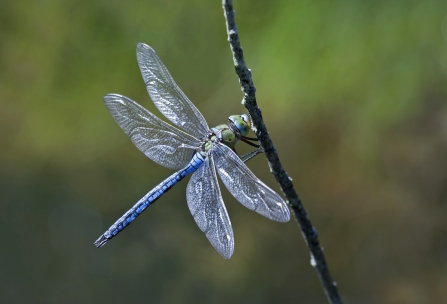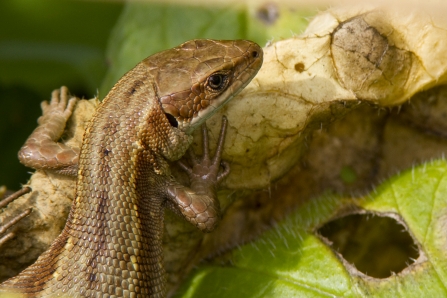Know before you go
Dogs
When to visit
Opening times
Open at all timesBest time to visit
All year roundAbout the reserve
A short walk from Newton Abbot town centre takes you to Wolborough Fen, a special urban oasis for wildlife nestled among the parkland and informal green space of Decoy Country Park.
A circular path leads around a wet woodland of willow, birch, oak and ash, edged with thicker cover or bramble and bracken. Amongst the trees and scrub, look out for over 30 species of bird, foraging for insects and seeds.
Ash dieback
The disease ash dieback is now widespread in the UK and is present at many of our nature reserves, so we carry out tree felling across our sites in winter months. For your own safety please observe temporary path diversions and closures.
Where possible we will leave affected ash trees in place to decay naturally as an important habitat for wildlife. We plan to only fell diseased ash trees which pose a threat to people or infrastructure. Before trees are felled, we will check whether any rare or protected wildlife is present. If it is, we will postpone or avoid felling these trees. No felling will take place during the bird nesting season.
DWT’s Saving Devon’s Treescapes project are working with communities, landowners and businesses to help make Devon's precious treescapes more resilient in the face of ash dieback. Find out how you can get involved here.
NOTICE: If you are visiting our reserves, please note that there have been instances of H5N1 Avian bird flu found in birds in Devon. There is very low risk to public health, but we do ask that if you come across any unusual or unexplained bird deaths on or near our reserves, please do not touch them and avoid allowing your dog to come into contact with dead birds. Please report them to Defra here or call 03459 335577 and also report your findings to DWT by email at contactus@devonwildlifetrust.org.
Habitat
Contact us
Environmental designation

The paths at Wolborough Fen get you close to some amazing water-loving wildlife, like this emperor dragonfly
Reserve central
At the centre of the reserve is a wet fen formed by a raised dome of peat nearly 3m thick, which has gradually built up over 2,600 years. Around this the watery landscape is completed by a range of ditches, pools, springs and streams. Together these support a good range of wetland animals and plants including dragonflies and wildflowers.
The delicate fen is sensitive to trampling, so there is no open access to the heart of the reserve, but from the paths you can see water mint and the pinky sprays of hemp agrimony; some 176 plant species have been recorded here. Common reed and greater tussock sedge, and stands of rare saw sedge, at its only site in Devon, sway above a rich variety of ferns, liverworts and sphagnum moss.
Something wildly different
Surrounding the fen is wet woodland which provides a home to rare fungi, hoverflies and craneflies. Frogs, toads and newts thrive in these conditions, while the reserve is also home to 25 butterfly species and more than 80 species of moth.
Wolborough Fen offers something wildly different, tucked away only a short distance from one of Devon's busiest towns.

Common lizard. Photo, Neil Bygrave




